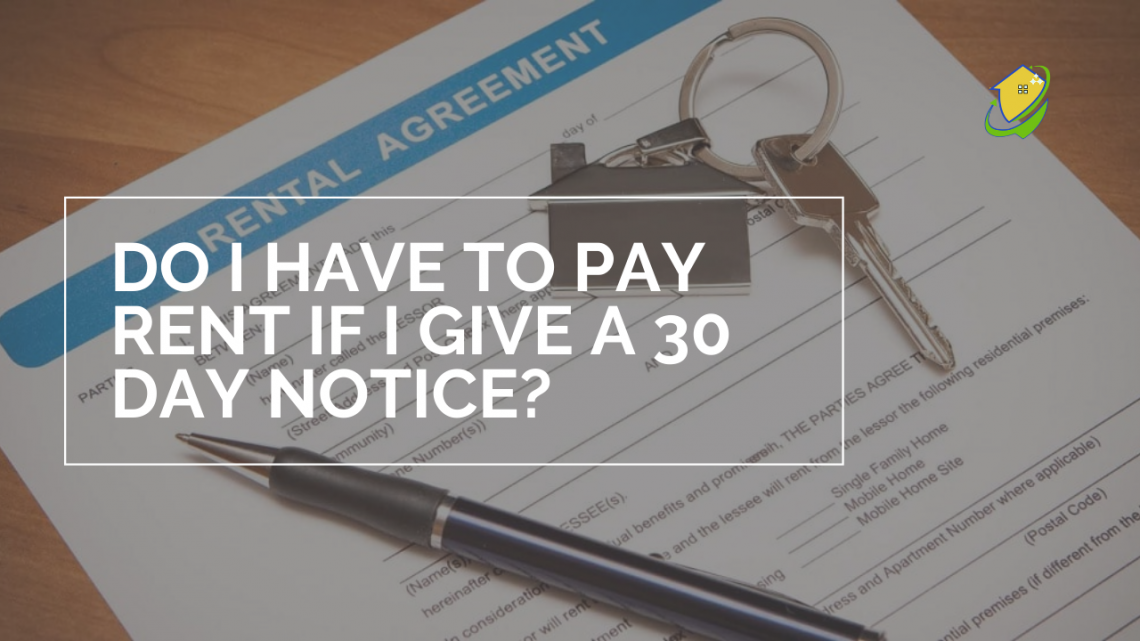Do I have to pay rent if I give a 30 day notice?
August 5, 2021In most situations, the landlord or agent is required to provide you with a notice of termination. If you do not vacate by the date specified in the notice, the landlord may seek a termination order from the NSW Civil and Administrative Tribunal (NCAT).
The rental arrangement has come to an end as a result of a termination order. The day on which you must provide vacant possession – that is, move out and return the keys – will be specified in the order. It is preferable to hand up the keys in person.
WHAT IS A NOTICE OF TERMINATION?
The landlord or agent must sign the termination notice in writing. It must include the following:
- The location’s address;
- The deadline for the landlord or agent to take ownership of the property
- If any, the grounds (reasons) for termination.
The notification must be duly sent or delivered to you by the landlord or agent. It can be delivered in person, by mail, by hand to your mailbox, or by email if you have given them permission to send you alerts through email.
HOW LONG DOES THE LANDLORD HAVE TO GIVE YOU NOTICE?
This is determined by the type of rental agreement and the grounds (reasons) for termination – see the table below for further information.
A fixed-term agreement is one that lasts for a set period of time (e.g. 6 months). A periodic agreement is one in which the fixed term has expired or no term is specified in the contract.
Minimum notice requirements
- The Grounds (reasons)
- Fixed-term contract
- Agreement on a regular basis
- There are no justifications (no reasons)
- 30 days towards the conclusion of the semester 90 days
- It does not apply to the sale of real estate.
For all contracts
The landlord or agent can send you a 14-day termination written notice if you do not satisfy your duties under the agreement according to the residential tenancies act 1997.
If you owe at least 14 days rent or are 14 days behind on your water use and/or utility expenses, your landlord or agent can send you a non-payment termination notice. If you pay all of the rent and other costs due, you can avoid the notice. Make an effort to work out a repayment arrangement with your landlord or real estate agent.
Overstaying your notice is lawful, but if you do, the landlord or agent can seek a termination date order from the Tribunal. If you can prove that you have remedied the problem, the Tribunal may decide not to terminate the agreement or may notify your intention to vacate the property.
For a fixed-term contract
Before the end of lease or fixed-term agreement, the landlord or agent cannot terminate your agreement without cause (no grounds). Your fixed-term lease can be terminated by the landlord with 30 days’ notice. They have till the last day of your fixed-term agreement to give you 30 days notice.
You are free to leave at any moment before the notice date, but you must pay rent until the end of the specified period.
Note that if you have a fixed-term lease, you cannot have it cancelled simply because your home is sold or breach of duty notice.
For a long-term arrangement
The landlord or agent has the right to terminate the agreement at any time without providing you a reason, but they must provide you 90 days’ after you receive the notice. The Tribunal must terminate the agreement if the landlord decides to seek a termination order after 28 days.
If your apartment is sold, your lease might also be cancelled. The landlord has the right to issue you a 30-day notice of termination. Consult your Tenants Advice and Advocacy Service.
You have the option to move out and cease paying rent at any moment before the notice expires.
YOU RECEIVE A TERMINATION ORDER BUT NO NOTICE OF TERMINATION?
Without providing you a termination notice, the landlord or agent can apply to the Tribunal for a termination order, but only for the following reasons:
- severe damage to the location or any nearby or shared property
- Injuries to the landlord, agent, employees of the landlord or agent, or your neighbors
- Using the location for nefarious reasons.
- You or another resident has threatened or abused the landlord, agent, or the landlord’s or agency’s staff on a regular basis.
The Tribunal may issue a termination order, requiring you to vacate your residence immediately.
You should seek assistance from your local Tenants Advice and Advocacy Service if the landlord or agent has applied to the Tribunal for a termination order.
If you do not vacate by the date specified in the termination order, the landlord or agent may apply to the Tribunal for a possession warrant.
WHAT ARE YOUR RIGHTS IN THE EVENT OF EVICTION?
Before you may be evicted, the landlord or agent must complete the necessary procedures. Without a Tribunal or court order, anybody who locks you out can be fined up to $22,000 and compelled to pay you.
You can ask the Tribunal to rule that the notification was issued in retaliation. In this situation, the Tribunal may rule that a termination notice is null and void.
You can’t just up and go without informing your landlord, even if you have a month-to-month rental rather than a lease. If you pay rent weekly, you must give seven days’ notice; if you pay rent monthly, you must offer 30 days’ notice. Giving notice does not exempt you from paying the rent.
Rent Payment
You must pay rent as long as you dwell in the unit. That rent check is your last if you provide notice the day you drop off your rent check and leave just before the following renting period begins. You may, for example, pay on the first of the month and provide notice on the 12th if the time is different. You must also pay rent for the first 12 days of the next month.
Leaving the House
It doesn’t matter if you’re actually living there or not if you have to pay the rent. Assume you give notice on June 6th, and your 30-day notice period ends on July 6th. If you move out on June 30, you will still be responsible for the next six days. The only exception is if your landlord replaces you with a renter as soon as you leave. You’re out of the woods once the new renter starts paying rent.
Notification
A phone call will not suffice as notification; it must be in writing. It is best to deliver the notification in person, although it can also be mailed. Use certified mail with a return receipt requested so you can prove the notification was received by the landlord or property management. The 30-day clock starts ticking on the date the letter is postmarked if you mail it. The shorter the time you have to pay rent, the sooner you deliver notice.
Nonpayment
Your landlord can simply take the money from your security deposit if you don’t pay the half rent for the next month. If it isn’t enough to compensate him for his losses, he can sue you. He may still decide that taking you to court for a few days’ rent isn’t worth the time and money. Even so, paying for your additional days eliminates the need to be concerned.




Looks like some very helpful information! I read the entire article and I love the writing style and passion in your posts. I also found some amazing information here https://conservationconstructionofdallas.com/reviews/ Again, I enjoyed this so much. Thanks for the excellent post. Keep it up!!!
Anyways, keep me company priligy review members
Después de apagar la mayoría de los teléfonos móviles, se eliminará la restricción de ingreso de contraseña incorrecta. En este momento, podrá ingresar al sistema mediante huella digital, reconocimiento facial, etc.